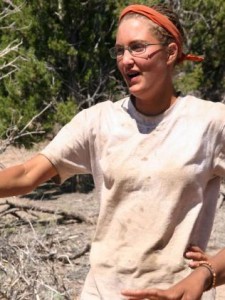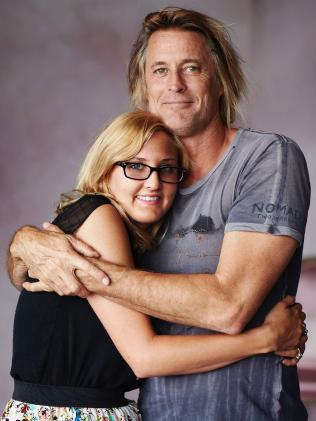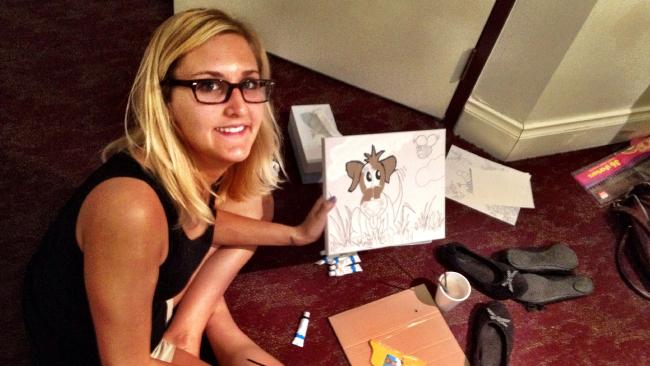 Hindsight is a funny thing. Look forward and the path seems uncertain, the future unpredictable. Look back and all the dots seem to connect… except the dots that mark the choices you didn’t make, and the risks you didn’t take.
Hindsight is a funny thing. Look forward and the path seems uncertain, the future unpredictable. Look back and all the dots seem to connect… except the dots that mark the choices you didn’t make, and the risks you didn’t take.
Here are choices you will someday regret having made:
- Choosing not to be brave.
Being brave doesn’t mean you aren’t afraid — in fact, the opposite is true. Courage without thought or meaning is simply recklessness. Brave people aren’t fearless; they’ve simply found something that matters more to them than fear.
Say you’re scared to start a business. Find a reason that means more: creating a better future for your family, wanting to make a real difference, or hoping for a more rewarding and fulfilling life.
Once you find a greater meaning, you also find courage. See fear not as something to shrink from but as something to overcome — because that’s all it is.
- Choosing the pain of regret over the pain of discipline.
The worst words you can say are, “If I had only…”
Think of all the things you’ve wanted to do but never have. What did you do instead? If you’re like me, you can’t recall. All you know is that time is gone and whatever you did instead wasn’t even worth remembering.
Think about one thing you dreamed of doing five or 10 years ago but didn’t work to do… and think about how good you’d be today at that one thing if you had. Think about all the time you wasted and can never get back.
Then, starting today, push yourself to do what you hope to do… so five or 10 years from now you won’t look back with regret. Sure it will be hard. Sure it will be painful.
But it will be a lot less painful than how it will someday feel when you look back on what could have been… but isn’t.
- Choosing not to say, “I will.”
A boss once gave me what I thought was an impossible task. I said, “OK. I’ll try.”
He told me trying didn’t matter–as long as I didn’t quit, I’d finish it. Trying didn’t enter into it. Persistence was all that mattered.
Often we say, “I’ll try,” because that gives us an out. Our egos aren’t on the line. Our identities aren’t on the line. After all, we’re just “trying.”
Once you say, “I will,” your perspective changes. What previously seemed insurmountable is no longer a matter of luck or chance but of time and effort and persistence.
When what you want to do really matters, don’t say, “I’ll try.” Say, “I will,” and then do everything possible to keep that promise to yourself.
- Choosing not to take plenty of shots.
You may never create the perfect business plan, may never find the perfect partners or the perfect market or the perfect location, but you can find the perfect time to start — because that time is now.
Talent, experience, and connections are important, but put your all into enough new things, and some will work.
Plus, after you take enough shots, over time you’ll grow more skilled, more experienced, and more connected. And that will mean an even greater percentage of your efforts will succeed. Take enough shots, and learn from each experience, and in time you’ll have all the skills, knowledge, and connections you need.
Ultimately, success is a numbers game; it’s all about taking a shot, over and over and over again. The more shots you take, the more times you will succeed. So get the power of numbers on your side and take as many shots as you can.
There is no guarantee of success, but when you don’t take any shots at all, you’re guaranteed to always fail.
- Choosing not to move.
Familiarity creates comfort. But comfort is often the enemy of improvement.
If you have a great opportunity and the only thing holding you back is the thought of moving, move. If you want to be closer to family or friends and the only thing holding you back is the thought of moving, move. If you want to be closer to people who think and feel and act like you, move. (When I asked singer/songwriter Lee Brice for the one piece of advice he would give any aspiring country artist, he said, “Move to Nashville.”)
When the fear of moving is the only thing holding you back, move.
Don’t worry. You’ll soon find cool new places to hang out. You’ll soon develop new routines. You’ll soon make new friends. And you’ll gain a great new perspective on your life.
Besides, Thomas Wolfe was wrong. If it doesn’t work out, you can go home again.
- Choosing not to let go.
Bitterness, resentment, and jealousy are like drinking poison and expecting the other person to die. You are the only one who loses.
Life is too short to resent all the people who may have hurt you. Let hard feelings go.
Then spend the energy you save cherishing the people you love and who love you.
- Choosing not to say you’re sorry.
We all make mistakes, so we all have things we need to apologize for: words, actions, omissions, failing to step up, step in, to be there when we’re needed…
Swallow your fear — or pride — and say you’re sorry. Then you’ll help the other person let go of their resentment or bitterness.
And then you both get to make the freshest of fresh starts, sooner instead of later — or instead of never.
- Choosing not to throw out your backup plans.
Backup plans can help you sleep easier at night. But backup plans can also create an easy out when times get tough.
You will work a lot harder and a longer if your primary plan has to work because there is no other option. Total commitment — without a safety net — will spur you to work harder than you ever imagined possible.
Then, if somehow the worst does happen (although the “worst” is never as bad as you think), trust that you will find a way to rebound.
As long as you keep working hard and keep learning from your mistakes, you always will.
- Choosing to be too proud.
Don’t be too proud to admit you made a mistake. Don’t be too proud to have big dreams, or to poke fun at yourself, or to ask other people for help.
Don’t be afraid to take a chance and fall on your face… and then to pick yourself up, dust yourself off, and go again.
Instead, take pride in the fact that no matter what might happen, you will always get up and go again.
That way, you never truly lose — and your dreams can never, ever die.
- Choosing not to care.
Rejection hurts. Sadness hurts. Failure hurts; sometimes a lot. So what do you do?
You avoid getting hurt by deciding you no longer care. But then you never get to experience the joy of connection, the joy of happiness, and the joy of success.
Choose to still be in the game. Choose to care.
Choose to live.
Thank you to Jeff Haden – Ghostwriter, Speaker, Inc. Magazine Contributing Editor who has given me permission to repost his article. You can follow Jeff on LinkedIn here









 Ingredients (makes 12)
Ingredients (makes 12)
 Plan a trip of any sort and get away.
Plan a trip of any sort and get away.









 It is not surprising that Australia Post won the best print advertisement at the Caxton Awards in 2007. M&C Saatchi Melbourne created the advertisement rightly named “Letter Hug”. In a previous post we spoke briefly of keeping in touch in between visits by sending a card, for the purpose of this post we should call it the “Card Hug”. The cards are simply written with loving words that ensure your children know they are top of mind even when you are not there. It can be a message saying you have arranged something special for the next time they visit, or you were remembering the last weekend and how much fun you had together.
It is not surprising that Australia Post won the best print advertisement at the Caxton Awards in 2007. M&C Saatchi Melbourne created the advertisement rightly named “Letter Hug”. In a previous post we spoke briefly of keeping in touch in between visits by sending a card, for the purpose of this post we should call it the “Card Hug”. The cards are simply written with loving words that ensure your children know they are top of mind even when you are not there. It can be a message saying you have arranged something special for the next time they visit, or you were remembering the last weekend and how much fun you had together. Fathers who have more contact with their children suffer less grief than fathers who have little contact. I have experienced both sides of this fence, and can empathise with fathers who see their children only every second weekend or less for that matter. This causes grief through the feeling of “separation loss” of your children. The moment we leave the family home our role changes, we are forced to physically care less for our children on a day to day basis. Everything we used to do in our former family life is adjusted!
Fathers who have more contact with their children suffer less grief than fathers who have little contact. I have experienced both sides of this fence, and can empathise with fathers who see their children only every second weekend or less for that matter. This causes grief through the feeling of “separation loss” of your children. The moment we leave the family home our role changes, we are forced to physically care less for our children on a day to day basis. Everything we used to do in our former family life is adjusted!

















Recent comments